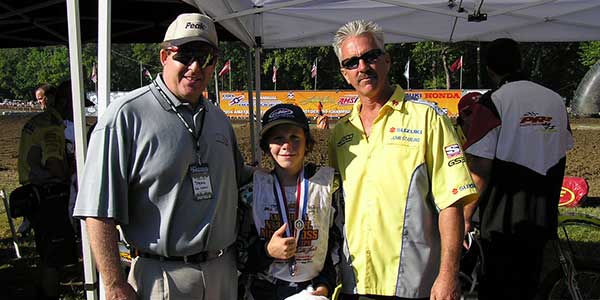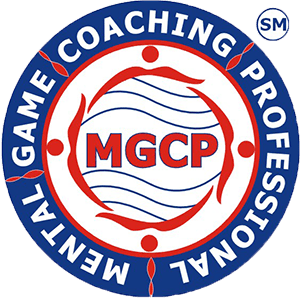
Mental Health in Youth Sports: Helping Kids Embrace Sports Psychology
Mental health for young athletes is more critical than ever. Young athletes face intense pressure to perform, fear of failure, and stress from competition. These challenges can erode confidence, increase anxiety, and even push kids to quit sports.
As a mental coach or sports coach, you have a unique opportunity to address these issues by introducing sports psychology. This powerful tool builds resilience, enhances performance, and supports emotional well-being.
Yet, kids often resist mental training, viewing it as boring, irrelevant, or a sign of weakness. Your role is pivotal in making sports psychology engaging and accessible. Here’s a comprehensive guide to help your athletes embrace mental training and strengthen mental health in youth sports.
Understand Their Perspective
Kids prioritize fun, immediate results, and physical skills. They may not understand why mental training matters. Some see sports psychology as therapy for “problems” rather than a performance booster. Younger athletes, especially, may lack the cognitive maturity for complex techniques like self-reflection or visualization.
Others resist because it feels like extra work. Recognize these barriers. Tailor your approach to their age, interests, and developmental stage. Frame mental training as a fun, game-changing skill, not a chore. This makes it approachable and sparks curiosity about mental health in youth sports.
Normalize Sports Psychology
Top athletes rely on mental health and sports psychology to stay at their best. Share inspiring stories of stars like Simone Biles, who uses visualization to nail routines, or LeBron James, who practices mindfulness to stay focused.
Frame mental training as a secret weapon. Say, “Mental toughness wins games when physical skills are equal.” This shifts their mindset. It reduces stigma around seeking help for mental health in youth sports. Kids will view sports psychology as a mark of strength, not a weakness, and be more open to trying it.
Keep It Simple and Fun
Complex mental health strategies overwhelm young athletes. Stick to bite-sized, age-appropriate tools. Teach a 30-second breathing exercise to calm pregame nerves. Introduce a quick visualization where they picture sinking a free throw or scoring a goal.
Turn focus drills into fun challenges, like “ignore the crowd” games where they tune out distractions. Fun keeps them engaged. Simplicity builds confidence. Avoid technical jargon or lengthy sessions, which can feel like schoolwork. By making it playful, you hook their interest and show how mental training supports mental health in youth sports.
Integrate It Into Practice
Don’t treat sports psychology as a separate activity. Seamlessly weave it into your training sessions. Before a scrimmage, ask each player to set a one-word goal, like “focus” or “effort.” During practice, pause after a mistake and guide them to reset with a deep breath. Incorporate team huddles where they share a quick mental strategy.
These small moments make mental training feel natural. Kids won’t think they’re “doing psychology”—they’ll just notice they’re playing better. This integration reinforces mental health in youth sports as part of their routine.
Model the Mindset
Your athletes watch your every move coaches and parents make. Model mental toughness in your coaching. Stay calm and composed during a tough game or bad call. Share personal examples, like, “I took a deep breath to refocus after that tough moment.” Show enthusiasm for mental training.
Say, “This visualization trick helps me coach smarter, and it’ll help you play smarter too.” Your passion is contagious. When kids see you embracing mental strategies, they’re more likely to try them. Your example sets a powerful tone for prioritizing mental health in youth sports.
Make Mental Training Relatable
Connect mental skills to their everyday lives. Ask, “Ever feel nervous before a big test? This breathing trick works for games too.” For gamers, compare staying calm in a match to clutch moments in Fortnite or FIFA.
Use analogies they love, like superheroes mastering their powers through focus. Relatable examples make sports psychology feel practical, not abstract. When kids see how mental tools apply to their world, they’re more invested. This approach also normalizes conversations about mental health in youth sports, making it less intimidating.
Celebrate Small Wins
Kids thrive on instant gratification, but mental training takes time to show big results. Bridge this gap by celebrating small victories. Notice when a player stays composed after a missed shot. Say, “Your focus today was clutch—that’s mental toughness!”
Highlight when a teammate uses a breathing technique to recover from a mistake. These shout-outs build confidence and momentum. Kids start associating mental skills with success, encouraging them to stick with it. Recognizing these moments reinforces the value of mental health in youth sports.
Use Technology and Resources
Kids love tech, so leverage it. Share kid-friendly mindfulness apps like Headspace for Kids or Calm, which offer short, engaging exercises. Point them to YouTube videos on mental toughness featuring athletes they admire.
For older athletes, suggest bite-sized podcasts like “The Sports Psychology Podcast.” These resources feel modern and cool, not like homework. They also let kids explore mental training outside practice, reinforcing your coaching. Tech makes sports psychology accessible and supports mental health in youth sports in a way kids already enjoy.
Partner With Parents
Kids need consistent messaging to fully embrace mental training. Meet with parents to explain your approach. Share simple exercises, like a one-minute visualization, they can encourage at home.
Provide a handout with easy mental strategies or app recommendations. When parents value mental training, they reinforce your efforts. This alignment creates a supportive environment, ensuring kids see mental health in youth sports as a priority. A united front between coaches and parents builds trust and commitment.
Be Patient and Persistent
Not every athlete will jump on board right away. Some will roll their eyes or resist when talking about mental health for athletes. That’s normal. Stay positive and patient. Offer mental tools as options, not requirements. Let them see teammates benefiting—peer influence is powerful.
For example, when one player shares how visualization helped them score, others get curious. Keep introducing small exercises consistently. Over time, even skeptics will come around. Your persistence shows kids that mental health in youth sports is worth the effort.
Leverage Team Culture
Create a team culture that celebrates mental strength. Encourage players to share how mental tricks boost their game during team meetings. Develop rituals, like a pregame focus chant or a post-practice gratitude circle.
Recognize mental toughness in team awards, like “Most Resilient Player.” A supportive culture makes sports psychology feel like a natural part of being on the team. Kids will adopt mental training because it’s “what we do.” This team vibe fosters mental health in youth sports organically.
Address Time Constraints
Young athletes juggle school, homework, and multiple activities. Adding mental training can feel like a burden. Keep it quick and efficient. A one-minute visualization or a 20-second breathing drill fits into any practice.
Use downtime, like water breaks, to sneak in focus exercises. Short, impactful activities ensure consistency without overwhelming kids or parents. By respecting their busy schedules, you make mental training sustainable and show that mental health in youth sports doesn’t require hours of extra work.
Encourage Open Dialogue
Create a safe space for kids to talk about pressure, nerves, or setbacks. Ask open-ended questions like, “What’s the toughest part of a big game for you?” Listen without judgment. Share that even pros feel anxious, but mental tools help.
This openness destigmatizes struggles and builds trust. When kids feel heard, they’re more open to sports psychology. Fostering dialogue strengthens mental health in youth sports and equips kids to handle challenges.
Your Lasting Impact
As a mental performance coach, you’re not just teaching skills—you’re shaping resilient, confident young people. Mental health for young athletes empowers athletes to thrive in competition and beyond. By making it fun, relatable, and part of your team’s DNA, you help kids embrace mental training.
You also champion mental health in youth sports, giving them tools to navigate stress, setbacks, and success. Stay patient, get creative, and lead by example. Your athletes will grow stronger, on and off the field, and carry these lessons for life.
MGCP Certification
Coaches can learn all our strategies with young athletes and parents in the MGCP Mental Performance Coach Certification program.

